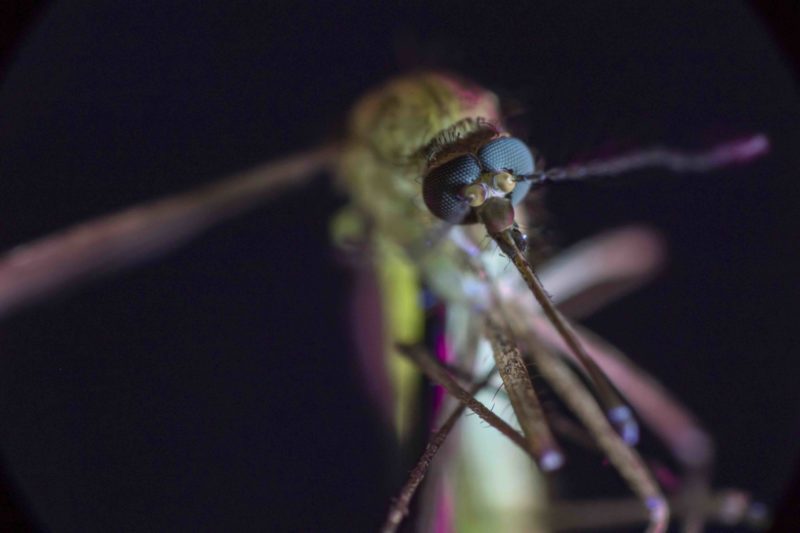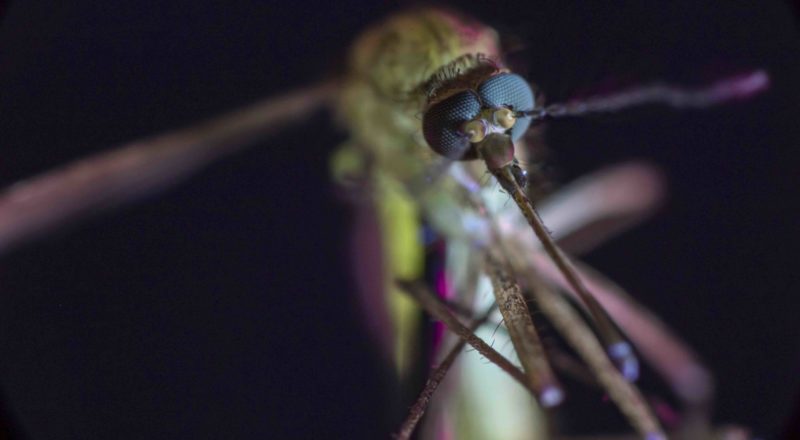INTERVIEW: Discovery delves into deadliest animal in the world: the mosquito

When a person thinks of the deadliest animal on planet Earth, he or she may think of some of the charismatic megafauna of the world — bears, lions, hippos, sharks. It turns out the deadliest animal is a fraction of the size of these larger species.
The mosquito has caused death and disease for centuries and continues to affect communities around the globe. From Zika to malaria to yellow fever, the diseases that are spread by mosquitos are serious, sometimes fatal and downright scary.
Discovery Channel has decided to dedicate a new special to this little disease-carrying insect. Mosquito premieres Thursday, July 6 at 9 p.m. on the network. Academy Award nominee Jeremy Renner narrates the special, which also features interviews with experts in the field, including Dr. Thomas Frieden, former director of the Centers for Disease Control and Prevention.
The CDC states on its official website that people should avoid mosquito bites. The government agency points out that the consequences and hazards of Zika, dengue and chikungunya are important to understand. Discovery, in a press release, states that more than 750,000 people die every single year from mosquitos and the diseases they carry. Many of these fatalities are children.
Recently, Hollywood Soapbox exchanged emails with the director of Mosquito, Su Rynard. Questions and answers have been slightly edited for style.
What do you hope the audience takes away after watching Mosquito?
Mosquito looks at the ways human impacts such as climate change, urbanization and globalization drive some species to extinction while making the world a better place for mosquitoes, especially the ones that spread disease. In this sense, Mosquito is a cautionary tale. We have to think about how we live and use the planet, otherwise we will never solve the mosquito problem.
What was the most surprising information you discovered when making the film?
I didn’t know that there are 3,500 different types of mosquitoes, yikes! Nor did I completely understand how deadly and life-affecting they are. When one considers that mosquitoes are responsible for killing more people than all the wars in history, they are a significant threat.
But even more concerning are the hundreds of millions of people affected by the diseases they spread. There is a scene in the film with an American woman who contracted West Nile disease. Her experience was so harrowing that she thought she would have been better off dying. Statements like this made me realize how life-changing and long lasting the effects of mosquito-borne illnesses are. After all, all it takes is one bite.

Do you believe this is an advocacy film? Are you hoping for change?
We need to raise awareness around the rise of mosquito-borne illness and how we in North America are vulnerable. One person with a highly contagious disease anywhere in the world can potentially affect the health of everyone on earth. We need [to] make the environmental connection. There was a time when natural systems could keep mosquito numbers in check and buffer disease, but this is no longer the case. It’s easy to forget that we, humans, rely on a healthy functioning eco-system for our survival.
The actions of the general public can go a long way to solving the problem of mosquito-borne illness. Here are a few simple things that people can do:
- Sign the Care2 Petition on the Discovery website www.discovery.com/mosquito.
- Reduce your carbon footprint. Climate change increases both range of mosquitoes and the numbers, so reducing your carbon footprint is a great way to fight back.
- Mosquitoes need only a surprisingly small amount of water to breed, so individuals can reduce mosquito numbers in their own neighborhood by emptying cans, buckets, garbage cans, roof gutters, flower pots, bottles, toys, plastic ‘kiddie’ pools, lids, old tires, pool covers and any other item that can hold water.
- Because this is a global problem that requires many nations, collective action is essential. Let your government know that global health security is important to you and that you support global public health initiatives. Importantly, elect officials that support scientific research and evidence based policy making.
What was it like to work with Jeremy Renner?
Exciting! In addition to being a super-talented, amazing actor that I totally admire, Jeremy is a very personable, salt-of-the-earth-type guy. I’m thrilled with the performance and what he brought to the film.
The mosquito issue is a complex one, and the science behind it all is hard to distill. How do you inspire people to care? As a non-scientist myself, I find that one of the most challenging aspects of making this type of documentary is to effectively communicate the complexity of the issue without being overly reductive. Jeremy really helped with this. He has a natural way of speaking that is familiar and accessible, and was able to transform the written word into a powerful yet intimate conversation.
What was it like to film on four continents? Were there unique challenges in each location?
Health and safety issues were paramount in filming Mosquito. We were filming in Brazil, Puerto Rico and Florida at the height of the Zika epidemic. We also filmed in Kenya in an area where we were exposed to active malaria cases. I am incredibly fortunate to be Canadian where we have full, top-notch health care benefits available to us, so we were able to access all the medical precautions currently available. There are, however, no vaccines or drugs for many mosquito-borne diseases like West Nile or Zika, to which we were exposed. In the end, it was luck that brought us all home safe and sound.
By John Soltes / Publisher / John@HollywoodSoapbox.com
Mosquito premieres Thursday, July 6 at 9 p.m. on Discovery. Click here for more information.

